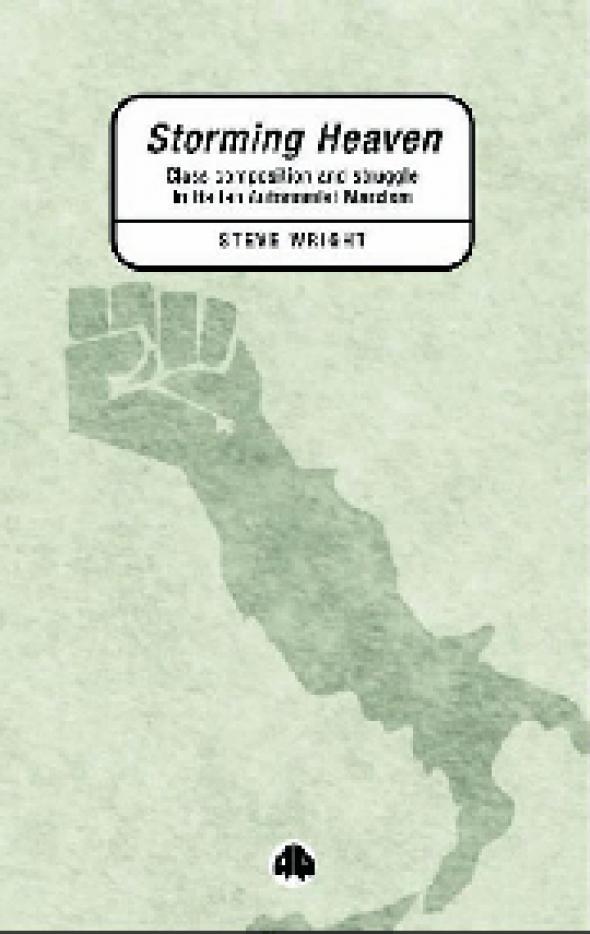Storming Heaven
As the author of a publication called Cyber-Marx remarks on its back cover, Aut-op-sy editor Steve Wright’s critical history of autonomist Marxism appears amid ‘a new wave of anti-capitalist activism’ and a slight revival of specialist interest in this diffuse set of practices, which seemed not long ago to have receded into the most rarefied political unconscious. Academics’ and activists’ recent flurry of excitement over Hardt and Negri’s Empire may risk further obscuring the autonomist current’s more austere rigours and troubling limitations. One of the book’s aims is to correct this tendency, resuming serious evaluation of the autonomist contribution to a future ‘without bosses.’
Wright painstakingly traces the genesis of the best-caricatured autonomist ideas in the ‘workerist’ thought emerging from the Italian factory struggles of the 1960s. Here rather than in his terse concluding gesture towards synthesis, he points to his subject matter’s crucial singularity. Thanks to Negri’s intellectual celebrity and the fetish/paradigm of the Italian social centres, an autonomist tradition is associated with such timely themes as refusal of capitalist work, pragmatic openness to non-militarised political violence, ‘mass illegality’ (popular appropriation of housing, electricity and water, organised looting or ‘proletarian shopping’, and so on), and the extension of revolutionary agency not only beyond union and party, but outside the industrial working class itself. Yet in themselves these have all also been non-Marxist New Left or at best anarchist preoccupations. The contemporary urgency of the autonomist example (which unlike Wright’s account is by no means confined to Italy) lies in its focus on the tension between ‘the technical and political composition’ (Mario Tronti) of the working class, its ‘objective’ organisation as labour-power and its potentially revolutionary subjectivity. These terms coherently span the drastic restructuring of labour’s qualitative form and international distribution since the 1970s, so are uniquely able to account for emerging (work-refusing, ‘post-industrial’) social subjects’ actions as consistent expression of the same specifically proletarian desire and power concentrated for the last 200 years in and against factory labour.
Attention to what’s at stake here explains Wright’s severity with the ‘political impatience’ that has led Negri and other enthusiasts to detach present class composition from its slow and contested evolution. ‘Anti-capitalist’ agendas transfixed by technological mutation and the stunning novelty of ‘multitude’ lose the thread of continuity. Having discarded the class categories without which ‘capitalism’ cannot meaningfully be defined, they end up unable to address it other than as an abstraction of Evil-without-qualities, to be clung to just as War Capitalism cherishes ‘terrorism’.
Storming Heaven: Class Composition and Struggle in Italian Autonomist Marxism // Steve Wright // Pluto Press // 2002 // ISBN 0745316069 // 272 pages // £15.99
Mute Books Orders
For Mute Books distribution contact Anagram Books
contact@anagrambooks.com
For online purchases visit anagrambooks.com








